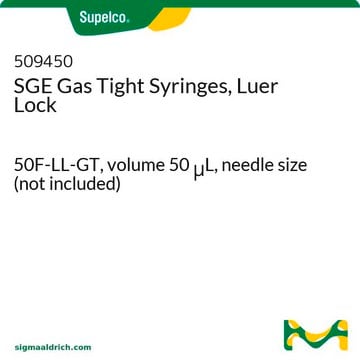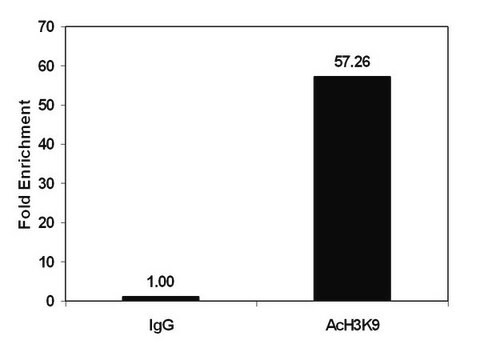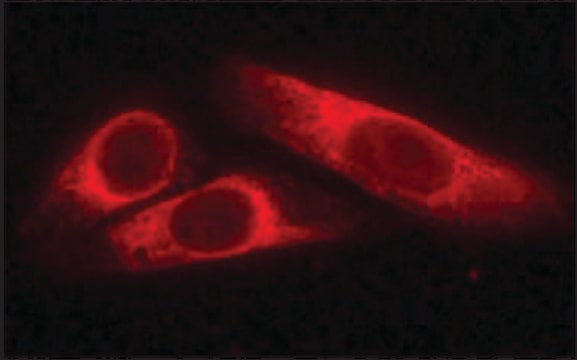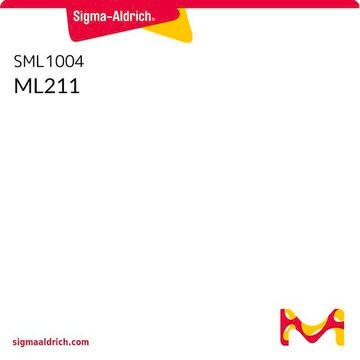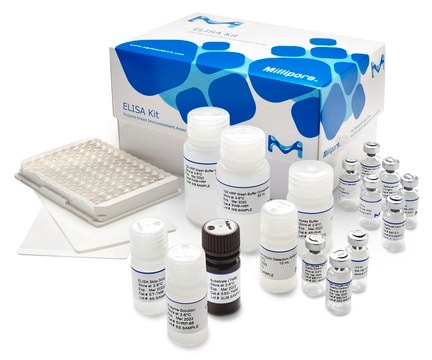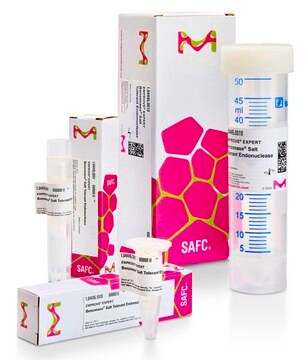539229
Anti-Protein Disulfide Isomerase Rabbit pAb
liquid, Calbiochem®
Synonym(s):
Anti-PDI
About This Item
Recommended Products
biological source
rabbit
Quality Level
antibody form
purified antibody
antibody product type
primary antibodies
clone
polyclonal
form
liquid
contains
≥0.9% sodium azide as preservative
species reactivity
guinea pig, Xenopus, sheep, bovine, rat, canine, hamster, porcine, mouse, monkey, human
manufacturer/tradename
Calbiochem®
storage condition
OK to freeze
avoid repeated freeze/thaw cycles
isotype
IgG
shipped in
wet ice
storage temp.
−20°C
target post-translational modification
unmodified
Gene Information
human ... PDIA2(64714)
General description
Immunogen
Application
Immunocytochemistry (see comments)
Immunoprecipitation (see comments)
Paraffin Sections (see comments)
Warning
Physical form
Reconstitution
Analysis Note
HeLa cells, rat testis, mouse spleen
Other Notes
Freedman, R.B., and Hillson, D.A. 1980. In Enzymology of post-translational modification of proteins. (Freedman R.B. and Hawkin H.C. eds.) Academic, London p. 157.
Legal Information
Not finding the right product?
Try our Product Selector Tool.
Storage Class Code
10 - Combustible liquids
WGK
WGK 1
Flash Point(F)
Not applicable
Flash Point(C)
Not applicable
Certificates of Analysis (COA)
Search for Certificates of Analysis (COA) by entering the products Lot/Batch Number. Lot and Batch Numbers can be found on a product’s label following the words ‘Lot’ or ‘Batch’.
Already Own This Product?
Find documentation for the products that you have recently purchased in the Document Library.
Our team of scientists has experience in all areas of research including Life Science, Material Science, Chemical Synthesis, Chromatography, Analytical and many others.
Contact Technical Service